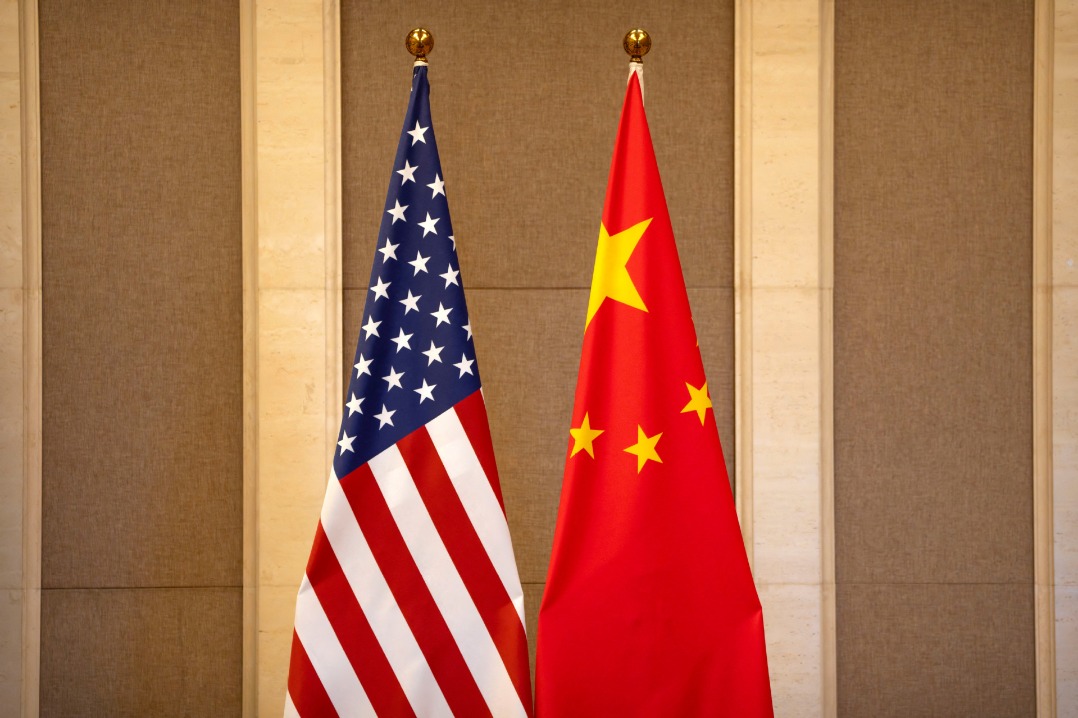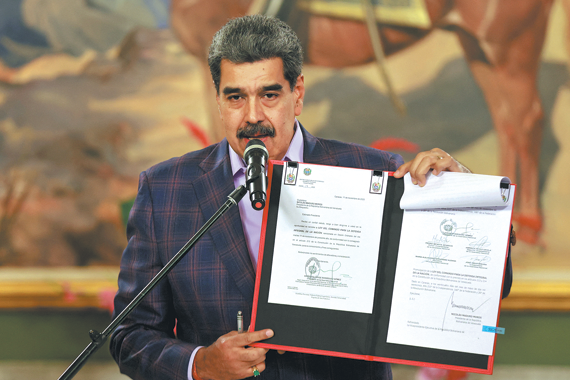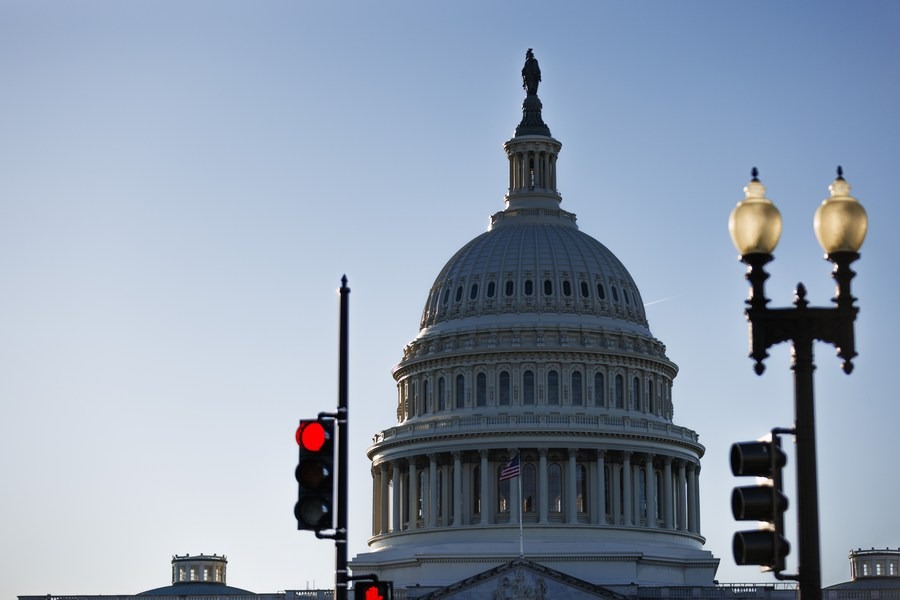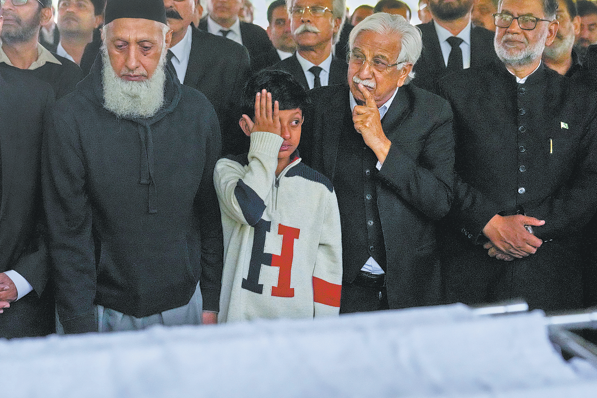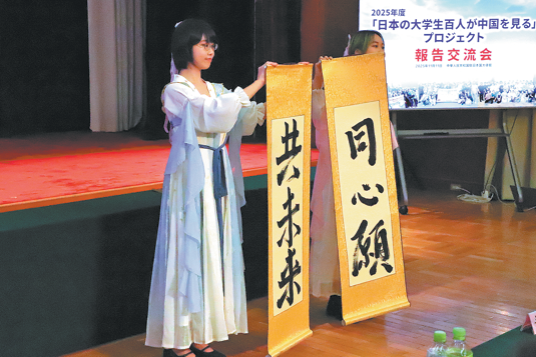American musician finds new meaning in Chinese music and community

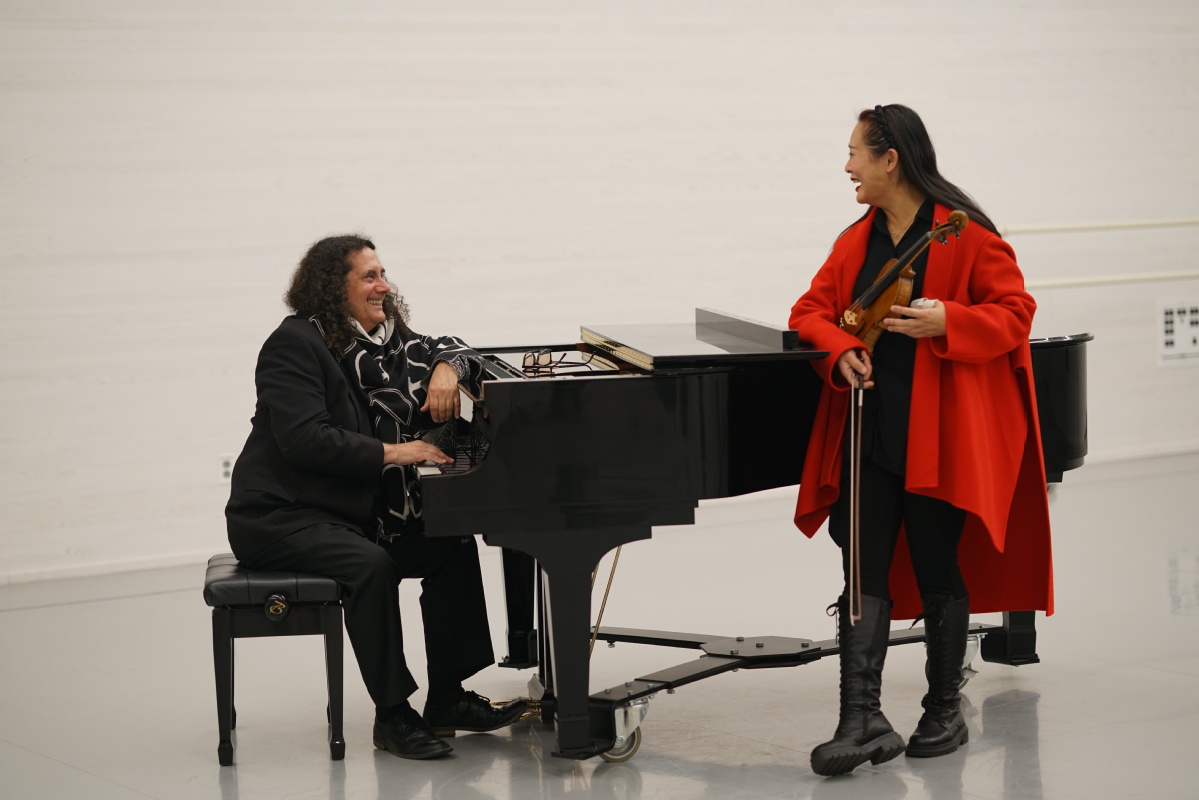
Princeton University came alive with the sounds of Chinese music, graceful dance and the aroma of traditional desserts during the Double Ninth Festival — a traditional Chinese holiday that falls on the ninth day of the ninth lunar month and celebrates health, longevity and respect for the elderly. The celebration, hosted by Asian student groups and Chinese-descendant students, was a portrait of cultural pride and community.
Amid the crowd of mostly Asian faces, one figure stood out: a white man smiling, clapping along, and eventually stepping onto the stage with his electric piano. He is Vince Di Mura, resident music composer and director for the Lewis Center for the Arts' programs in theater and dance at Princeton.
"I feel like I've been reborn with a whole new set of musical values and an entirely new community that has adopted me and that I, frankly, have fallen in love," said Di Mura, who discovered Chinese music and became part of the Chinese community about three years ago.
Born into an Italian-American family, his mother worked as a hairdresser and his father ran a body shop. Di Mura recalled a formative moment: When he was five, his father bought an organ. Di Mura sat down and played it "as if I had known it all my life," he said, and he has been playing ever since.
Di Mura fell in love with blues and jazz at the age of seven, but one day he decided to explore classical music. By the time he was around 14, he had made his Carnegie Hall debut and collected numerous awards. He later pursued formal studies at the Manhattan School of Music and Temple University. In his late 20s, however, he realized he "didn't belong in classical music" and returned to jazz. That decision marked the turning point in his career, which began to take off around the same time he started working at Princeton.
"My career went on a three-part trajectory — collaboration with dance and theater, jazz and blues, and then something else that was waiting," he said. "Now, later in my life, I'm writing symphonic music again. I had to find a new voice, and I found it in Chinese music."
His first encounter with Chinese music came about a decade ago, when he was assigned a thesis project at Princeton that required him to compose for traditional Chinese instruments in collaboration with the Princeton University Chinese Music Ensemble. The experience, he recalled, felt "very alien."
The opportunity to reconnect with Chinese music arrived when he conducted Monkey, a production by a Chinese-American jazz musician Fred Ho.
"It was an education," he said. He had to get acquainted with instruments like the two-stringed bowed erhu, the Chinese lute known as a pipa, and the suona, a reeded horn.
As if fate had been quietly leading him toward the world of Chinese music, in 2023 Di Mura met Wendy Fan, a member of the local Chinese community. She attended one of his concerts, where he was transforming songs by singer-songwriters like Taylor Swift into jazz. After the performance, she approached him with a simple question that would change everything: "You think you could do that with Chinese music?"
"I don't know. Why don't you bring me someone?" Di Mura replied.
Fan took him up on the challenge and introduced him to Lina Zha, a singer from the Chinese community.
"I can work with that. Now, I really can work with that," Di Mura recalled with a laugh. From that moment, a new band was born, Summer Breeze Chinese Jazz Fusion Ensemble, with Di Mura on piano, Zha as the lead vocalist, several Princeton students he had previously worked with playing a variety of instruments, as well as pipa musician Yang Jin, who Di Mura described as "brilliant" and has done many duet works with.
Fan works in IT, and she said she was amazed when she first heard Di Mura's music. Driven by curiosity, she wanted to see how he would interpret Chinese music. Today, they are very close, with Fan serving as the band's creative director.
"He is very good at telling jokes. We often party together, and he always makes everyone laugh. In our community, everyone welcomes him. Even when he plays a lot of Chinese music, people feel very close and connected to him."
She shared a story of Di Mura in California, where he was in a gallery performing The Moon Represents My Heart by Teresa Teng, the legendary Chinese singer often hailed as "the eternal queen of pop". Some Chinese students stopped by, sang along and gave him a hug. They told Di Mura that he had made them feel at home.
To date, the band has performed more than a hundred shows, ranging from major venues like the Lincoln Center to intimate gatherings in private homes where community members come together to socialize. They have also released three albums.
Now, Di Mura is taking his passion even further. He devoted six hours a day for 16 months to his most ambitious project yet, naming it Oh God … Beautiful Machine and transforming it into a 90-minute, three-part production with 20 minutes (Part II: The Cassowary) dedicated to the Chinese community, accompanied by librettos written by Pulitzer Prize-winning poet Yusef Komunyakaa. The show made its world premiere on Oct 25 at the Patriots Theater at the War Memorial in Trenton, New Jersey.
"That's my favorite piece, and I spent more time on that because as much as I really enjoyed writing the rest of the piece, what I wrote was love. I love the Chinese community, people have no idea. I mean, I have never been treated with more love, respect, support," he said, noting that more than half of the audience came from the Chinese community to support him and his fellow bandmates.
In the audience was Wu Hongyan, who has known Di Mura for two years and came to show his support. Wu said he was initially surprised by Di Mura, an American musician who doesn't speak Chinese, for being so deeply involved in community festivals and always participating with great enthusiasm.
"The Cassowary was most memorable to me. It carried a distinctly Chinese musical spirit, yet spoke entirely in his own language, with the rhythm, space and improvisation of jazz. The elements of East and West intertwined naturally, not as a labeled 'fusion' but as a genuine resonance from within," said Wu.
"The piece conveys a beautiful idea that different cultural voices don't have to compete for dominance. With mutual respect and attentive listening, new sparks can emerge," Wu added.
In the Chinese community, many see Di Mura as a warm, familiar presence. Rather than speaking about cultural exchange in abstract terms, he demonstrates it through action by showing up, collaborating and performing alongside others. To people like Wu, his steady participation embodies the spirit of genuine friendship between the two countries.
At the end of the interview, Di Mura had an emotional message to the Chinese community: "I love them. It's that simple … I know it's a weird thing to say in the Chinese community that you love somebody, but damn I love you people."
















